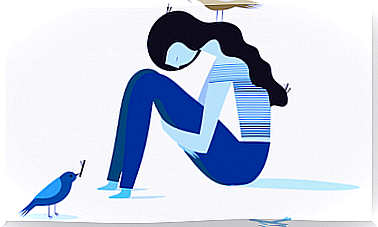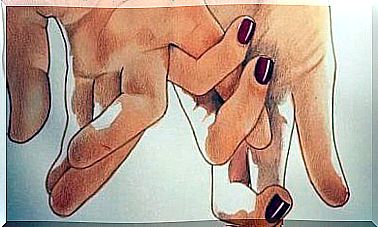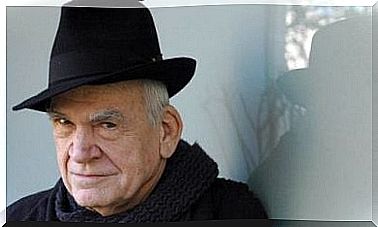The Four Stages Of An Emotional Crisis

The stages of an emotional crisis are normal phases in the process of trying to restore balance. A critical situation is not resolved overnight but means that you go through several different steps before you can find a complete solution.
Each of the stages of an emotional crisis contains a set of responses which, although not in principle the most appropriate measures, correspond to a normal way of reacting. They prevent us from forcing situations or reactions, and they let things flow naturally when our own intervention is not necessary.
In this type of crisis, the person is affected so strongly that the situation involves not only its emotions, but also its cognition and its behavior. Under these conditions, it is difficult for a person to think clearly, find solutions or be helpful to others.
We will now take a closer look at the stages of an emotional crisis.

1. Paralysis – the first stage in an emotional crisis
The main feature of an emotional crisis is that it creates a situation where there is an unexpected change that gives instability and uncertainty for the future. In emotional crises, there are one or more realities that cause a subjective shock and that temporarily overload our ability to react.
The first of the stages in an emotional crisis is paralysis, which, if it survives, is a sound defense mechanism. In the wild, animals often stand still at first when they feel they are in danger, especially an unknown danger. Paralysis is an expression of confusion, mainly due to the suddenness of the situation.
2. Uncertainty
After the first moment of ignorance , a state of uncertainty begins, which is characterized by the presence of anxiety and despair. The person begins to understand what is happening but focuses more on the size of the threat than the tools to deal with it.
In this situation, a confused anxiety easily arises. This is closely linked to feelings of disorientation, difficulty finding emotions, confused ideas and limited awareness. There is a feeling of feeling lost and at the same time threatened by what is happening.
Intrusion and withdrawal
This phase does not always occur as one of the stages in an emotional crisis, but it does occur in many cases. This experience occurs mainly in cases of more intense crises. It is characterized by irrational fears and sharp feelings of anxiety.
What happens during this stage is that you withdraw and stop shopping. In this phase, people are constantly thinking about the current crisis. By doing so, one begins to overestimate the seriousness of the problem and fill the senses with all sorts of catastrophic scenarios. In addition, you feel a total inability to do anything for them.
Intrusive thoughts emerge. It is images or perceptions that suddenly and involuntarily enter the mind. These are unpleasant and frightening thoughts that the person in crisis wants to keep away, but can not. This is the most acute of the stages in the process of dealing with an emotional crisis.

4. Preparation and resolution
It is very difficult to get through an emotional crisis without some form of external intervention. This can sometimes be a friend, a book, some advice or a therapist.
This intervention is the decisive factor that marks the transition from the state of shock to another state that enables the person in crisis to work through what has happened and process it correctly.
Some form of external factor is important to express the discomfort that the person is experiencing, and this usually takes a verbal form. This can be either oral or written and is an ideal mechanism for starting to organize ideas, feelings and perceptions. To put the situation into words is a basic tool to understand and begin to process it.
The person needs to let go of the pain and begin to process the situation consciously. By doing this, it is possible to build a more realistic view of what has happened and also to identify the tools available to deal with the crisis.
These can be one’s own personal tools and abilities, or external. After this “elaboration” comes the resolution, which is when the person recovers to a healthy emotional perspective.
In many cases, when you do not seek special help, you can be trapped for a long time in one of the earlier stages of an emotional crisis. Visiting a psychologist in this type of situation is an effective option. This is because a psychologist can provide valuable support for the process to be carried out both faster and healthier.









